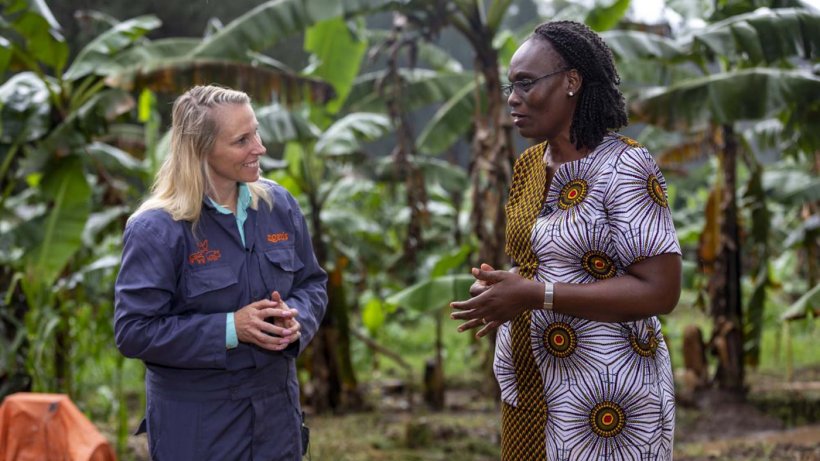 Zoetis today reported on progress during the five years of its African Livestock Productivity and Health Advancement (A.L.P.H.A.) initiative to establish sustainable veterinary care including access to vaccines, medicines and diagnostic services in Uganda, Nigeria, Tanzania and Ethiopia. The initiative, co-funded with the Bill and Melinda Gates Foundation, concludes its five years of progress by improving livestock health, productivity and farmers’ livelihoods in Sub-Saharan Africa.
Zoetis today reported on progress during the five years of its African Livestock Productivity and Health Advancement (A.L.P.H.A.) initiative to establish sustainable veterinary care including access to vaccines, medicines and diagnostic services in Uganda, Nigeria, Tanzania and Ethiopia. The initiative, co-funded with the Bill and Melinda Gates Foundation, concludes its five years of progress by improving livestock health, productivity and farmers’ livelihoods in Sub-Saharan Africa.
“The A.L.P.H.A. initiative has helped veterinarians enhance their technical knowledge, while supporting farmers improve productivity and make the sector more sustainable. Farmers in the region now embrace better farming practices and are improving their profitability, income and quality of life,” said Olutoyin Catherine Adetuberu, DVM, President of the Nigerian Veterinary Medical Association (NVMA), who presented her experience on the impacts of the initiative in Nigeria at the anniversary event in Brussels.

Foundation for enhanced veterinary care
“Animal health is extremely important in contributing to sustainable economic development goals and business opportunities in Africa,” said Glenn David, Executive Vice President and Group President at Zoetis. “Farming and animal agriculture are major forms of livelihood for people in Sub-Saharan Africa. By improving access to critical veterinary products and services, and supporting an infrastructure for quality animal healthcare, we can make a positive long-term impact.”
“We have seen first-hand the impacts of improving animal health in Sub-Saharan Africa and partnering with local institutions to develop veterinary education and sustainable livestock productivity solutions,” said Mike McFarland, DVM and Chief Medical Officer at Zoetis. “Looking ahead, we are taking steps to ensure we can continue to support veterinary education and training, and build the infrastructure needed to help veterinarians and farmers continue to improve the health and productivity of their livestock and livelihoods.”

Key learnings, barriers to animal health, and advancing solutions
The A.L.P.H.A. initiative has uncovered a significant need for access to training and education on the use of veterinary products and services, and an overall understanding of the benefits of advanced animal care on a farm’s productivity.
The initiative’s leaders identified a need to focus on when and how to vaccinate an animal; properly diagnose a disease with the help of veterinarians and other professionals; and how to treat sickness and restore productivity of livestock and improve health management on a farm.
Sub-Saharan Africa is home to some of the largest livestock populations in the world – and the highest density of impoverished livestock farmers. Livestock are essential assets to rural communities: improving animal health, and the productivity of small holder farmers, are critical to achieving food security, in areas of exceptionally high animal and human disease incidence.
Working toward UN Food Systems Solutions
Promoting a rapid uptake of existing, scalable best practices and tools in animal health and husbandry is one of the solutions promoted by the Food And Agriculture Organization of the United Nations (FAO) that could reduce the emissions footprint of livestock farming by 30%. The impact of A.L.P.H.A., and more generally of community development through livestock productivity, supports better livestock health for more nature-positive protein production that measurably improves natural resource use efficiency, limits the need for new farmland, and supports a growing population.
“Unique in our approach is the sustainability angle, which is essential to encourage a mindset shift in the livestock sector towards entrepreneurialism and ownership. Empowerment of the farming and veterinary sectors is critical to enable Sub-Saharan Africa to meet the rising productivity needs of the region in a sustainable manner,” said Gabriel Varga, DVM, Regional Director Sub-Saharan Africa at Zoetis.
June 28, 2022 - Zoetis




